Post COVID-19: where does sustainable development fit into a changed world?
Over recent years, consumers have become more interested in what companies do for society and the planet, aside of the need to make profits. While society is facing up to the pandemic, the rise in unemployment and the suffering caused by COVID-19 also have an effect on consumer expectations and priorities regarding the social responsibility of companies.
Particular attention needs to be paid to human well-being
The Covid-19 Pandemic has put people back at the center of considerations. During lockdown, certain jobs came into the limelight. Not only doctors, nurses and pharmacists, but also cashiers and agri-food industry personnel became the heroes of the day. The COVID-19 clusters that appeared in agribusiness factories also made consumers aware of the health risks for workers. These infection hotspots put certain companies in the spotlight, especially if there appeared to be a lack of adequate protection for staff. After this quarantine period, consumers will want to know if the individuals who ensured that the things they needed were on the shelves have been suitably rewarded.
The Covid-19 Pandemic has put people back at the center of considerations.
Measures to protect health and safety at work need to be put into effect before governments take action if brands are not to appear disconnected from reality. The way companies communicate on the human aspect and communities will be present in the minds of consumers when making their shopping choices.
 Figure 1: Fair remuneration, a concern for purchasers [1]
Figure 1: Fair remuneration, a concern for purchasers [1]
The current health crisis is plunging us into economic recession, causing rising unemployment and accentuating social inequalities. Lockdown led to the temporary closure of a lot of shops, but even today certain branches of activity are not yet back in operation. At the end of August 2020, half the workers in the world were living in countries where sectors of economic activity had remained at a standstill. This situation has a negative impact on the labor market. It is estimated that the equivalent of 345 million full-time jobs have been lost compared with the same period in 2019 [2]. Being responsible, reliable and ethical at an affordable price will be more important than ever if we are to win over consumers in the post-COVID era.
The pandemic has also made consumers realize that their own well-being depends to an extent on good collective health, making hunger around the globe a collective concern. The UN (United Nations Organization) has warned that the shutdown of certain activities and the consequent rise in unemployment threaten an increase in hunger around the world, especially in urban areas. The World Food Program is warning of a hunger pandemic in the wake of COVID-19 [3]. Consumers are therefore going to be more interested to know what action brands are taking to fight hunger around the world.
Food hygiene and safety, the primary concern of consumers
COVID-19 has re-centered the attention of consumers on food hygiene and safety. People worry about the possible contamination of food products during the course of the supply chain.
COVID-19 has re-centered the attention of consumers on food hygiene and safety.
 Figure 2: Consumers concerned about possible contamination of their food [4]
Figure 2: Consumers concerned about possible contamination of their food [4]
The food industry communicates little about all that is done to ensure the safety of food products because the food safety measures in place are part of the norm.
With COVID-19, the importance of details that may seem commonplace take on their full importance. Consumers want more details concerning the place of origin and production methods of their foods, as well as the people involved. In Italy, for example, 30 % of consumers are now more interested in the details on packaging about the origin of the ingredients [5].
As consumers continue to be cautious with regard to perceived links between coronavirus and the food industry, manufacturers need to reassess the messages they give out about safety and hygiene. They need to make greater efforts to demonstrate that procedures already exist for the safety of food products, as well as outlining those implemented more recently and giving a simple explanation of the industrial processes involved. Certification is one way of providing reassurance to the consumer.
Lactalis Ingredients has always been committed to providing assurances of the safety of food products and has fixed an objective of having 100% of its food factories FSSC 22000 certified by 2025. Currently, 80% of its factories already are.
The Planet
Lockdown has demonstrated the impact that human activity has on the planet. Human activity was reduced to a minimum, which led to a tangible improvement in the quality of air and water. It is possible that the health crisis will, in 2020, bring about the largest annual drop in CO2 emissions ever recorded, larger than during any past economic crisis or period of war. In fact, the reduction in CO2 emissions in 2020 could achieve a level of 5.5% of the emissions of 2019 [6]. Consumers will not want these gains to be lost with the resumption of economic activity. The pandemic is therefore going to accelerate the adoption of more responsible consumer behavior, thus fueling a boom in “localism” as well as efforts to reduce food wastage.
The pandemic is therefore going to accelerate the adoption of more responsible consumer behavior, thus fueling a boom in “localism” as well as efforts to reduce food wastage.
Consumers will evidently not allow the pandemic to serve as a pretext for companies to abandon their sustainable development efforts. Considerations of Public Health and the Economy have obviously taken precedence over the Environment during the pandemic. That does not mean that companies can see that as an opportunity to give up on environmental initiatives. While consumers are mostly interested in information relating to the health and well-being of employees, more than a third (35 %) of consumers express a desire for information on the sustainable development initiatives of companies [7]. This points to environmental awareness being enduring even during a global health crisis.
 Figure 3: sustainable development initiatives remain central to the preoccupations of consumers. [7]
Figure 3: sustainable development initiatives remain central to the preoccupations of consumers. [7]
To find out more about Lactalis Ingredients’ initiatives to protect People and the Planet, you can download the CSR REPORT.
Sources:
[1] Dynata/Mintel; Lightspeed/Mintel – Base: Australia: 1,000 internet users aged 18+; Germany: 2,000 internet users aged 16; Canada: 2,000 internet users aged 18+ – December 2019.
[2] ILO Monitor:COVID-19 and the world of work. Sixth edition, 23 September 2020
[3] https://www.un.org/fr/coronavirus/articles/hunger-worsening-for-vulnerable-population
[4] Lightspeed/Mintel; Mintel’s Global COVID-19 Tracker – Base: Brazil: 1,500 internet users aged 16+, 28 May-15 June 2020: Canada: 2,000 internet users aged 18+, 18-27 June 2020; Spain: 1,000 internet users aged 16+, 15-25 June 2020.
[5] Ayisha Koyenikan, Garner trust with greater transparency post COVID-19, Mintel Insight, 15 July 2020.
[6] CarbonBrief: Analysis: What impact will the coronavirus pandemic have on atmospheric CO2? May 2020
[7] GlobalData Coronavirus (COVID-19) Tracker Consumer Survey – Week 7; Data refers to 11-country average















